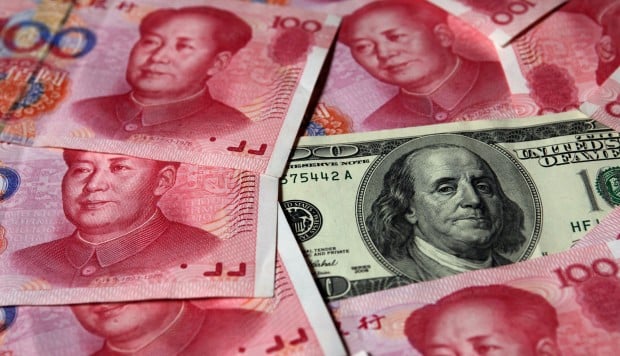
China’s foreign exchange reserves rose for the 12th consecutive month on the back of a weakening dollar and tough capital controls, according to official data released on Wednesday.
Reserves grew US$21.5 billion in January to hit US$3.16 trillion, the highest since October 2016, People’s Bank of China figures showed.
The monthly growth in January, which was bigger than an increase of US$20.2 billion in December, came amid China’s strict capital account controls and a strengthening yuan, which is at its highest level against the US dollar since August 2015.
“China does not face much pressure from capital outflow for now,” said Hong Hao, chief strategist at Bocom International Holdings. “Pretty much all the loopholes in the capital control scheme have been plugged.”
China’s forex new year resolution: hit illegal currency outflows hard in 2018
China has introduced a series of capital control policies in the past two years, including tighter scrutiny of individual purchases of insurance plans abroad and of overseas asset acquisitions by companies.
The government was unlikely to relax its grip, Hong said, because the measures were a key reason the foreign exchange reserves had stabilised.
“There is long-term demand driving capital outflow because as China’s economy matures, people want to diversify their asset portfolios and buy overseas assets,” said Claire Huang, a China economist at Societe Generale.
The State Administration of Foreign Exchange said in a statement that the reserves rose in January thanks to appreciation of non-dollar currencies in the portfolio, and China would see “more balanced” cross-border capital flows in the future.
On Tuesday, the central bank reiterated its determination to “prevent cross-border capital flow risks” and “clamp down harshly on foreign currency crimes”, including underground banks helping Chinese move their money overseas, in a statement following its 2018 working meeting.
We’re back to currency wars, and here’s why that is bad for markets
Beijing regards capital outflow as a major threat to economic and financial stability after China lost about US$1 trillion in its foreign exchange reserves from mid-2014 to early 2017.
Chinese individuals can purchase US$50,000 worth of foreign currency each year, an annual quota that was renewed on January 1.
Huang noted that US dollar-denominated forex reserves may have been inflated by the weakened dollar because it pushed up the US dollar value of euro and yen assets.
“The valuation effect played a large role in the rise of forex reserves this year,” Huang said.
And with the yuan strengthening more than 5 per cent against the US dollar in the past three months, the government was unlikely to lend support to lift the currency any further, Hong said.
“It’s a delicate balance – neither too much appreciation or depreciation is good for China’s economy,” Hong said.
An even stronger yuan would hurt Chinese exports and raise the costs of its economic structural reform, he said.
Forex reserves rose for the whole year in 2017, the first time since 2014.
China’s forex reserves extend run of rises in December as controls bite and yuan gains ground
Read Again China's forex reserves rise for the 12th straight month : http://ift.tt/2E73Xf6Bagikan Berita Ini














0 Response to "China's forex reserves rise for the 12th straight month"
Post a Comment